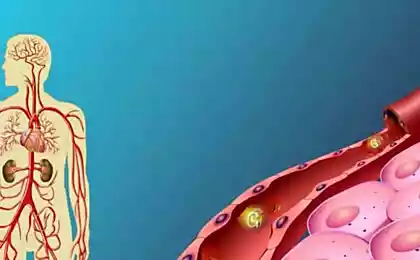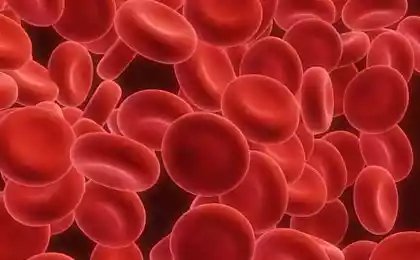229
12 Signs You Are Eating a Lot of Sugar

Many people mistakenly believe that high blood sugar is only seen in diabetes. In fact, excessive consumption of sugar-containing products gradually increases the concentration of glucose in any person, and often this happens unnoticed. If you ignore certain “signals”, the body can be seriously affected long before doctors detect clinical signs of chronic disease.
Sugar lurks in the most unexpected foods, from sauces and salad dressings to sports drinks. World statistics and data from the World Health Organization (WHO) indicate a constant increase in sugar consumption in many countries. And not all sweet tooth realize that an excess of glucose in the diet can gradually undermine health, leading to obesity, metabolic syndrome and a number of other problems.
In this article, we look at 12 signs that may indicate that you are eating too much sugar. These signals do not always directly indicate a serious disease, but with regular manifestations, you should review your diet and analyze whether you are abusing sweets. These recommendations are aimed at a wide adult audience and will be useful to anyone who wants to understand what the “dangerous line” looks like between an innocent love of desserts and a real health risk.
Main part
1. Constant fatigue and drowsiness
If you notice that during the day all the time throws you to sleep, and energy is not enough for even half of the usual tasks, perhaps it is not just a lack of sleep. Elevated blood sugar levels lead to sharp jumps in energy: first you feel a surge of strength (after a portion of sweet), and then a sharp decline. As a result, the body finds itself in an “energy swing,” and you may feel depressed and tired even if you’ve slept the required number of hours.
- The effect of "fast carbs": after taking sweets, glucose levels rise briefly, but fall rapidly, causing fatigue.
- Violation of exchange processes: The body spends more resources on processing excess sugar.
2. Concentration problems
Like energy fluctuations, blood sugar spikes can affect cognitive function, including the ability to concentrate and analyze information. People often complain of “head fog” or distraction. It is not necessary to have a diagnosis of diabetes; it is enough to consistently exceed the norm of glucose intake to face this symptom.
Some studies published in the NCBI database show that high sugar levels negatively affect brain structure and function in the long run. Although this sounds less dramatic on a household scale, even everyday distraction sometimes leads to significant losses of time and efficiency.

3. Constant hunger
Paradoxically, people who consume a lot of sugar may be more likely to experience hunger than those who follow a balanced diet. Why is this happening? The matter is insulin - a hormone that regulates glucose levels. With a regular excess of sugar, a condition occurs when cells worse absorb glucose from the blood, and the brain receives a “signal” that energy is not enough.
- Insulin resistance: One of the key factors that can lead to prediabetes and type 2 diabetes in the future.
- Overload with “fast” carbohydrates: “Carbohydrate hunger” occurs because the body does not get enough protein, fat and fiber.
4. Increased craving for sweets
It sounds like it’s a given: love sweets means you’re consuming more sugar. But it is worth paying attention when cravings go beyond the “love of dessert” and turn into a constant need. With excessive consumption of sugar, taste buds get used to a high concentration of sweetness, and over time the body needs more and more.
- A vicious circle is formed: The more sweet you eat, the more you want more.
- Difficulty breaking the habit: Reducing sugar in the diet causes a kind of “breakdown”, similar to withdrawal syndrome.
5. Skin problems
Excess sugar affects not only the figure or energy level, but can significantly worsen the condition of the skin. High glucose contributes to inflammatory processes, increases the likelihood of acne and rashes. Also, sugar contributes to the acceleration of glycation processes - when sugar "attached" to collagen fibers, weakening their structure and accelerating the appearance of wrinkles.
- Acne and pimples: It is especially characteristic of people with sensitive skin, in which insulin jumps provoke an increase in the work of the sebaceous glands.
- Early elasticity loss: Excessive sugar consumption can contribute to premature aging of skin tissues.
6. Sudden mood swings
If you notice that your mood “jumps” from serene joy to irritability and back again, maybe it’s the wrong balance of sugar. As mentioned above, fast carbohydrates cause a sharp release of energy and an equally rapid drop in it. This also affects the emotional background:
Many people notice that they become more anxious and nervous if they do not get another dose of sugar for a long time. On the other hand, when they finally eat something sweet, there comes a period of "imaginary euphoria" - but this does not solve the problem, but only continues the cycle.

7. Frequent infections and weakened immunity
Excessive consumption of sugar weakens the immune system, making the body more vulnerable to bacteria and viruses. High sugar levels create an environment favorable for the reproduction of certain microorganisms, and complicate the work of white blood cells.
- Common colds: If you regularly suffer from SARS, think about whether to reduce sweets.
- Development of fungal infections: For example, candidiasis (thrush) is sometimes provoked by high sugar consumption.
8. Dental problems
One of the most obvious signs of “sweet excesses” is caries. Sugar is an excellent breeding ground for bacteria that destroy enamel and promote plaque formation. Regular visits to the dentist can be a signal that it is time to review your diet:
- Frequent fillings or restorative procedures: It's not always a "congenital problem," sometimes it's a consequence of a love of sweets.
- Sensitivity of teeth: It can also increase due to damage to enamel and micro-cracks.
9. Obesity or weight gain
Sugar is a source of so-called “empty calories”, which do not carry significant nutritional value (vitamins, minerals, fiber), but contribute to excessive energy metabolism. If there are a lot of chocolates, sweet sodas or pastries in the diet, excess weight can quickly accumulate, especially in combination with a sedentary lifestyle.
- Overeating: “fast” sugar is quickly absorbed, but does not give a long feeling of satiety, which provokes to eat even more.
- Increased visceral fat: This type of fat surrounding internal organs is associated with higher risks of cardiovascular disease.
10. Increased sense of thirst
High blood sugar levels disrupt the osmotic balance, which is why the body tries to remove excess glucose through the urine. As a result, a person often goes to the toilet, loses more fluids and begins to feel thirsty:
If you notice that you are drinking a lot more water (provided that you do not exercise hard and do not live in extremely hot climates), it is worth checking whether the consumption of sweets has increased.
11. Slowing down the wound healing process
Another sign that is not always associated with sugar is slow tissue regeneration. High glucose levels can slow the flow of blood cells needed to repair skin damage. This is especially noticeable in people with prediabetes or diabetes, but mild manifestations can be observed with general sugar abuse.
- Frequent scratches and abrasions heal longer: If you notice that even small wounds do not hurry to heal, pay attention.
- Inflammatory processes: High sugar causes low-level inflammation that makes regeneration difficult.
12. Hormonal failures and failure of the menstrual cycle in women
The female hormonal system is very sensitive to fluctuations in insulin levels. Regular spikes in sugar can negatively affect the production of estrogen and progesterone, causing cycle failures, changes in libido, and impaired reproductive function. In men, high sugar can negatively affect testosterone levels and overall well-being:
- Irregular periods: One of the common signs of imbalance.
- Sudden mood swings: Hormonal changes affect the emotional sphere.
Conclusion
Many of these symptoms can easily be confused with other health problems or attributed to stress and fatigue. However, if you notice several of these “signals” at the same time, it is worth thinking: perhaps the diet is “overloaded” with sugar, and it is time to adjust it.
You can do this gradually: start checking food labels, choose drinks without added sugar, replace desserts with fruits or a small amount of dark chocolate, and monitor the overall level of carbohydrates in the diet. Regular medical checks (blood glucose levels, glycated hemoglobin) will help to monitor whether the situation is out of control.
Do not consider sugar an absolute evil: in moderation, it can be part of a healthy diet. However, in modern culture, food packed with fast carbohydrates has become too readily available. Therefore, understanding the signs indicating overkill will allow timely intervention and prevent serious consequences. The approach to nutrition should be conscious - and then life will not only be sweet, but also healthy.























